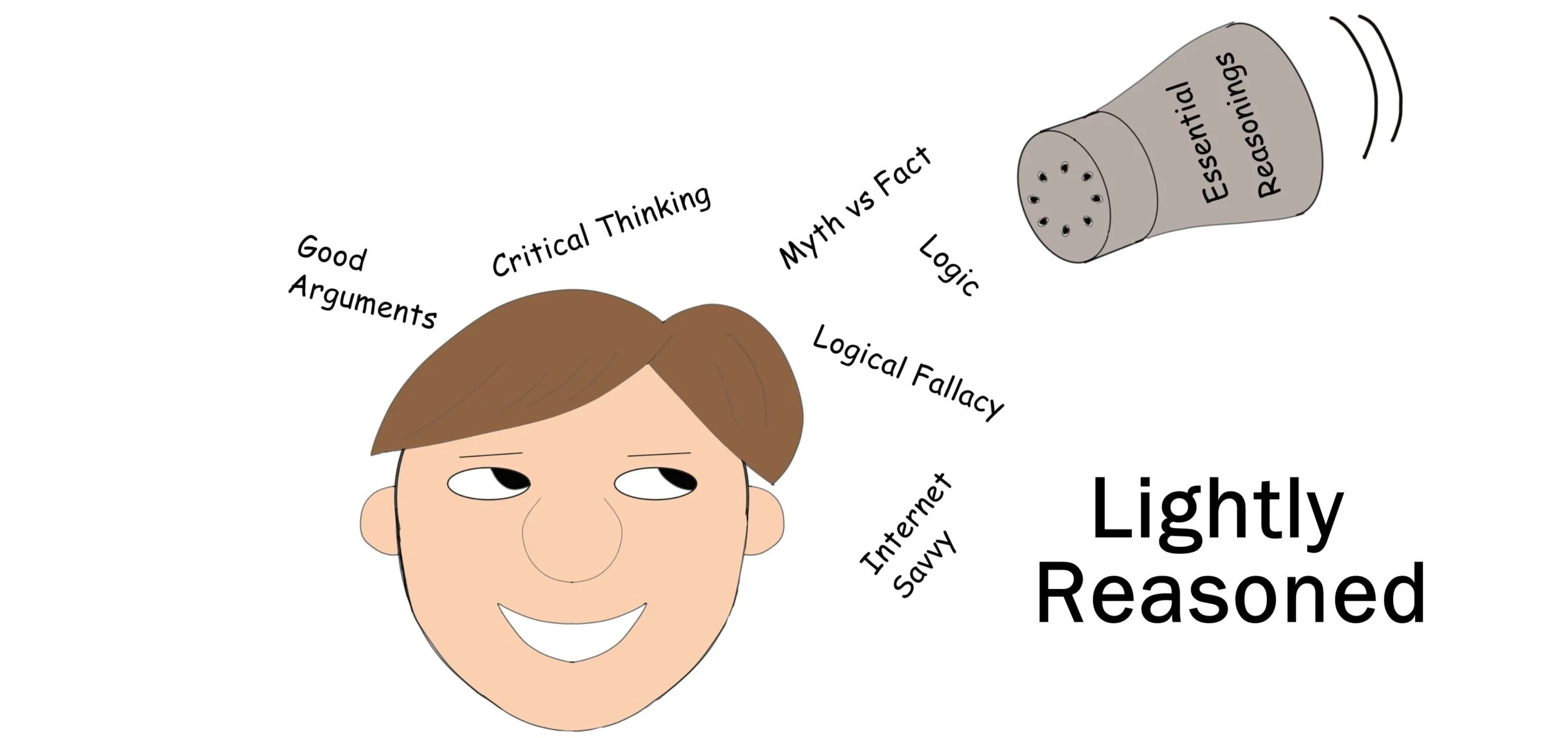Syllogisms. More than just a fun word to say. These are a logical concept that routinely shows up in general discourse. We check out several types of syllogisms, where they can occur and how not to make mistakes. All with the help of a bird. Read more to find out!
Episode 10: Pedantry is dumb, but still useful
People keep telling me I drink way too much coffee. They say I really should drink less than 12 cups a day (just for the record, this is for illustrative purposes only!). But I’m smart and informed and ready with a comeback. I know that “less” is applicable when discussing mass or weight and what they really mean is “fewer” which applies to counting. I can confidently respond “Aha, since you said less, then you are wrong and my coffee habits are fine! Good day sir.”
Of course that makes me a jerk (again, for the record, I don’t actually do that, illustrating and all). It also makes me a pedant or engaging in pedantry. This is when a person is overly concerned with minor details and rules, and it shows up in language quite a bit. That grocery store sign that says “12 items or less” should really be “12 items or fewer”. We all understand what is meant and get on with our shopping though, we don’t need to know the difference.
I will argue that knowing there is a difference is, however, useful. In a grocery store context less and fewer are easily interchanged. If you are reading a scientific article the author might be using these terms with their exact meanings implied. These terms can show up in dieting – less than 12 grams of sugar per day and fewer than 3 servings of ice cream. By understanding the differences we can more easily see meaning and nuance. If we run across them used incorrectly we don’t have to get bent out of shape.
Another fun but useful bit of pedantry is the meaning of terms venom and poison. Venom is a Spiderman villain and Poison is an 80s rock group. No, wait, that’s not it. Venom and poison are actually the same thing but differ by their method of application. If the substance is injected, then it is venom and that’s how we get venomous critters – they bite or sting to inject the venom. Poisons, on the other hand, are something that we ingest (or inhale). So, by these rules, if I extract the venom from a snake, drink it and it harms me, I poisoned myself (I don’t recommend doing this). What if I extract the venom, put it into a syringe and inject it into myself, I guess then it’s still venom. The important point is that there is some kind of toxin in my body that probably isn’t good and I should see a doctor.
Drat, I said toxin up there, didn’t I? This is a tough one, especially these days. It’s a word that normally has a pretty broad meaning but has now become a thing unto itself. We all need to quit taking in toxins and we need to get the toxins out. Here’s the confusing bit, toxins aren’t a thing. Everything is toxic to us, it just depends on the amount. Oxygen, yep, too much will kill you. Water, yep, that one too. Vitamin C – you’re gonna need a lot but it does get toxic at some point. Other items are simpler to determine: hydrochloric acid is bad even though we all have some anyway in our stomachs, alcohol is good at the start but too much is bad, radioactive substance are generally not good, tide pods we know aren’t good at all. When we hear mention of toxins in our bodies we should immediately ask what substance is it that we have too much of because toxin is more of a catch all term.
Understanding the differences in words is not of itself a bad thing. It’s ok if someone calls a snake out on the hiking trail as poisonous, we don’t really need to correct that. If we’re talking with a physician, herpetologist or poison control center then we may want to try and use these terms with their more exact meanings. Knowing when to look for and use the more detailed meanings of words is the useful bit of knowledge to keep in mind. The real kicker here will come when someone tells me I didn’t define pedantry accurately enough.


